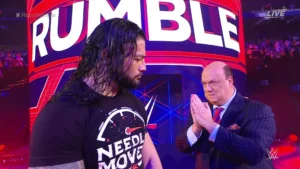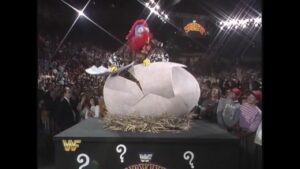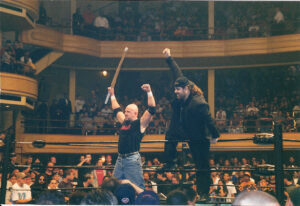Wrestling unionization hasn’t been something that’s been talked about as much as it should; either in the industry itself, or in wrestling media. However, it’s something that’s seemingly gained traction after Cody Rhodes took to Twitter, apparently in support of the issue.
Taking to Twitter, Rhodes wrote that wrestlers have never been better, but promoters have never been more “clueless.” In his words:
Wrestlers have never been more talented and responsible
The people in charge of wrestlers have never been more clueless and irresponsible
Need to band together
— Cody Rhodes (@CodyRhodes) October 15, 2018
But, would forming a union actually do anything for wrestlers? Why would anyone – including Cody Rhodes – even call for one? Well, as it turns out, unionization in wrestling has a more complicated history than you might think. But first, there’s a few things that we should mention in order to put everything in context.
A Little Bit Of Context
For the most part, wrestlers work for promotions as independent contractors; essentially, they’re not actually company employees and therefore not eligible for the likes of healthcare, etc. This made sense during the early days of wrestling up until very recently, when the wrestling scene – both in North America and abroad – was split up into territories.
Wrestlers would only stay in a particular territory for a few weeks and then move on, in order to keep their character fresh and not risk over-exposure. Because of that, it was generally agreed that independent contractor status would be standard. This saved promoters and wrestlers a load of hassle, but came with the cost of talent having to pay all of their own expenses.
A (Brief) History Of Wrestling Unionization

Over the decades, there have been a few instances were forming a wrestling union was brought up. Out of the earliest was the case of Jesse Ventura in the 1980s. Speaking in the last few years about the subject, Ventura said that he tried on several occasions to get the then-WWF wrestlers to unionize; after all, both WWE and WCW were dominating the markets, and the wrestlers were essentially being treated like employees.

He’s since stated that he still wants wrestlers to unionize, and always had. According to Ventura, however, someone backstage brought the issue to Vince McMahon‘s attention, and Ventura saw a reduced run and eventual dismissal from the then-WWF. In an interview with Stone Cold Steve Austin, Ventura also claimed that, during a trial involving Vince McMahon, he learned that it was Hulk Hogan who brought the issue to McMahon.
You can check out his talk with Austin about it below.
https://www.youtube.com/watch?v=h517pMHHWVo
After that, wrestlers were still seen as independent contractors. Former WWE superstar Ryback also seemed to want to form a union; he’s said in his podcast and in interviews that he went to WWE management several times, raising concerns about how the superstars were treated.
What Wrestlers Gained From Unionizing
He also claims that this was one of the reasons why he was eventually let go from the company. Which leads us to now, with Cody Rhodes seemingly calling for forming a wrestling union. But what would the likes of Cody Rhodes, and wrestlers at large, gain from unionizing? To put it simply, they’d gain much needed leverage in negotiating with promoters and companies. They’d get what a union in any industry would get: bargaining power.

As Ryback noted in several podcasts and interviews, in the majority of cases, wrestlers have to pay for their own transport, as well as medical costs, etc. As he noted, while many can earn a living as a wrestler, they still have to shill out a lot of their paycheck in hotel rooms, surgeries, doctors appointments and more – never mind the costs related to their life outside of wrestling.
Forming a wrestling union means that wrestlers would be able to force many of those costs on the wrestling promotions – their employers in all but name. And this is the reason that many promotions – WWE included – would rather that wrestling unionization wouldn’t happen.
Could Cody Rhodes Make A Difference?
The main question now is whether or not Cody Rhodes could actually make a difference. On the one hand, he’d be introducing a major disruption to an industry whose major stakeholders would be actively against. On the other hand, when he first announced All In, he was laughed at, but he managed to outdo even his own optimistic estimates.

There’d be a very short list of who could make that kind of change to the wrestling industry. Cody Rhodes would probably be on that list; at the very least, right now he’d be a difficult person to bet against.






